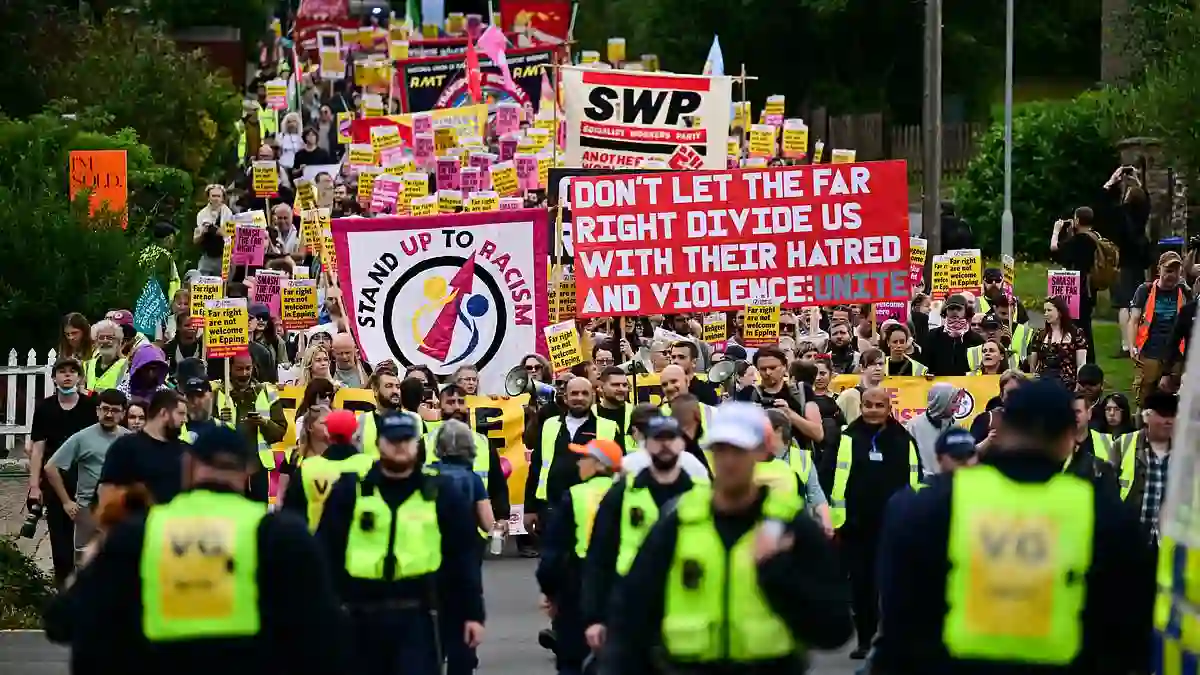What started as a government effort to make the internet safer is now being criticized for doing the exact opposite—stifling speech.
The UK’s Online Safety Act, which officially kicked in last Friday, is already triggering backlash from politicians, digital rights groups, and everyday users.
Why? Because people are finding themselves blocked from seeing certain posts—many tied to political protests and controversial issues.
Protest Footage Gets Silenced on X
Over the weekend, users on X (formerly Twitter) noticed something strange: they couldn’t view videos of protests outside a hotel housing asylum seekers in Leeds.
Instead, they were met with a message saying the content was “restricted due to local laws.”
The same happened with footage showing activists being arrested by police.
Some users even found themselves blocked from watching a passionate speech MP Katie Lam gave in Parliament about grooming gangs.
New Rules Mean Age Checks or Big Fines
Under the new law, websites must now verify that users are over 18 before allowing them to view anything deemed potentially “harmful”—a category that includes not just adult content but also violent or disturbing material.
If platforms fail to comply, they risk fines up to £18 million.
But because platforms like X don’t yet have proper age verification in place, some content is just being restricted by default—for everyone.
Critics Slam the Law as a Threat to Free Speech
This isn’t just about website logistics—it’s about freedom, say critics.
Zia Yusuf from Reform UK didn’t hold back, calling the Online Safety Act “the biggest ever assault on free speech in the UK.”
He argued it hands too much control to unelected officials who can decide what’s allowed online.
Madeleine Stone from digital rights group Big Brother Watch warned that “intrusive new age checks” are just the beginning.
She said the law is having a “catastrophic effect on free speech,” with websites now more likely to block access just to play it safe.
US Politicians Also Weigh In
The backlash isn’t just limited to the UK. Even U.S. Vice President JD Vance has weighed in, raising concerns that the legislation could be used to silence dissent under the guise of “safety.”
Critics fear the law is broad enough to justify censorship of anything politically sensitive or controversial.
Police Deny Role in Online Censorship
Tensions were already high after recent protests in places like Epping and Leeds.
In one case, Essex Police were accused of escorting counter-protesters to a demonstration.
Meanwhile, West Yorkshire Police made it clear that they weren’t involved in the online censorship.
It was, they said, out of their hands.
X Keeps Quiet While AI Explains the Blocks
The platform itself hasn’t officially commented on the situation.
But its built-in AI chatbot, Grok, suggested that the content from Leeds might have been flagged under the Online Safety Act due to violent scenes.
And since X doesn’t have an age check system in place, many users were automatically blocked from viewing it—regardless of their actual age.
Government Defends the Law
Despite the growing criticism, the UK government insists it’s committed to protecting free speech.
A spokesperson said, “Free speech is fundamental to our democracy and we’ve taken robust action to protect it, including through the Online Safety Act.”
But campaigners argue that promise is ringing hollow as more and more posts disappear behind warning screens.
So Where Does This Leave Us?
While the law may have been created to shield people—especially young users—from harmful content, the early rollout has highlighted the messy balancing act between safety and freedom.
Right now, it seems the Online Safety Act is sparking more confusion and censorship than clarity and protection.
And the conversation about where we draw the line online is only just beginning.
